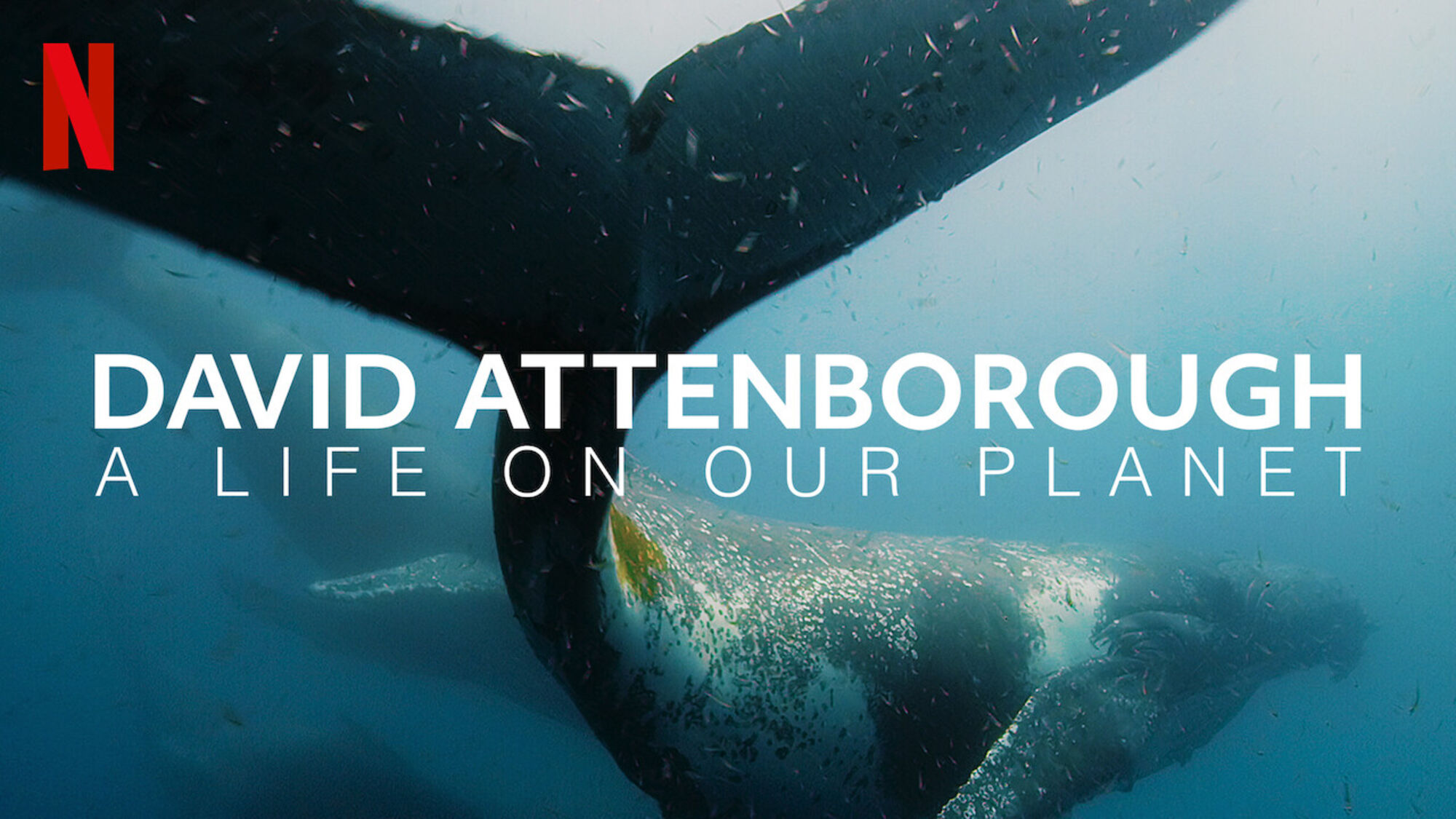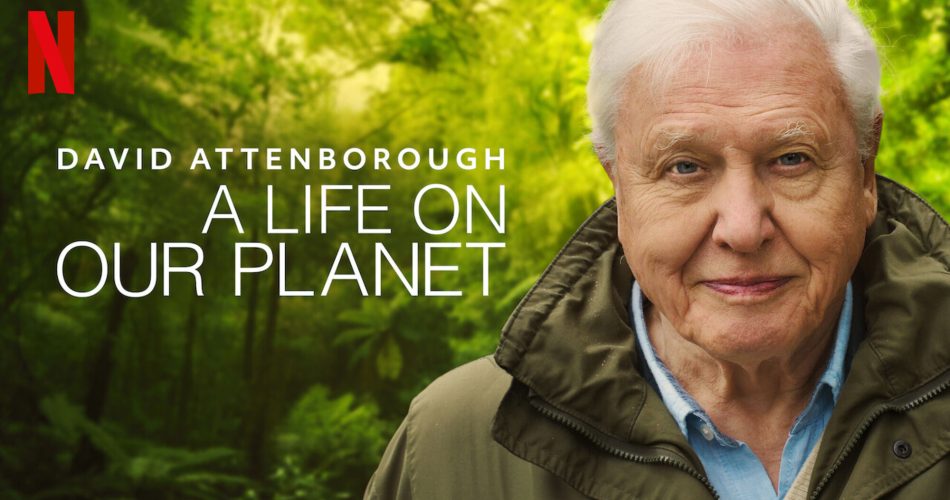Sir David Attenborough, aged 94, is a legendary broadcaster for a long time with the BBC and a natural historian. He is known for his deep voice and his coverage of the animals around the world like no one else. His series like Life on Earth (1979), Life in the Freezer (1993), Blue Planet (2001) and others are remarkable works documenting the seldom seen lives of several species we share this planet with.
 His latest work: A Life on Our Planet (2020) is in his words “a witness report” of how the planet has changed in his (single) lifetime. A must watch program for every human being, it is available on Netflix India.
His latest work: A Life on Our Planet (2020) is in his words “a witness report” of how the planet has changed in his (single) lifetime. A must watch program for every human being, it is available on Netflix India.
The documentary starts from the inside of desolated buildings of Chernobyl in Ukraine, where once the humans evacuated an urban sprawl, within a short span of three decades, nature and the wild have come back and claimed the space. This setting shows the dire state of our planet and also the power of nature; with or without human spices, Planet Earth will survive.

David Attenborough: A Life on Our Planet (2020)
Sir Attenborough, describes how the bio-diversity and wild-cover have shrunk drastically in the last 60 years and we are close to the brink. He talks of Holocene, a timescale in natural history, that provided us with predictable climates and regular seasons; this rhythm is now torn apart due to our reckless unsustainable actions. Holocene, I learned from Wiki is divided into Meghalayan (present to previous 4200 years), Northgrippian (4200 years ago to 8200 years) and Greenlandian (8200 years ago to 11,700 years ago).
Rewilding the world is simpler than you might think. A century from now, our planet could be a wild place again.
– Sir David Attenborough
The statistics he presents are eye-opening and scary, as it should be. Having eliminated all our natural predators, and found manageable cures for diseases (parasites) we humans have been able to grow in numbers without any constraint. Unfortunately, the energy & the resources we are now consuming are not renewable and anything that is not renewable is not sustainable. We, the humans have to realise we are one of the several millions of species on this blue rock, and we need to learn to coexist with other species, we need them for the biodiversity & our own sustenance more than before.
Every other species on Earth reaches a maximum population after a time. The number that can be sustained on the natural resources available. In Japan for example, as healthcare and education improved, people’s expectations and opportunities grew, and birth rates fell.
– Sir David Attenborough
All is not gloomy, he gives hope that good changes are happening around the world in pockets, we need to get inspired by these pilot programs, learn, and then scale them around the world.
- Sunlight alone can provide us with over 20 times the energy we need, Morocco generates 40% of its energy needs from renewable power plants including the world’s solar farm, it is expected to be an energy exporter by 2050.
- The ocean is our critical ally in our battle to reduce carbon in the atmosphere, the more diverse it is the better it does its job, the Republic of Palau which depends on tourism and fishing for its revenues, officially protected 80% of its water resources, becoming the first country to do so, as a result, significant increases in the country’s economy in less than two years was seen. Estimates suggest that ‘no fish’ zones over a third of our coastal seas would be sufficient to provide us with all the fish we will ever need.
- We must radically reduce the areas under farming, the quickest and most effective way to do that is for us to change our diet. The planet can’t support billions of large meat-eaters, there isn’t enough space. If we all had a large-plant based diet, we will need only half of the farmlands we are using currently. The Netherlands is covered with small family-run farms with no room for expansion, so Dutch farmers have become expert at getting the most out of every hectare, increasingly they do it sustainably, raising yields tenfold in two generations at the same time using less water, fewer pesticides, less fertilizer and emitting less carbon. Despite its size, the Netherlands is now the world’s second-largest exporter of food.
- A century ago, more than three-quarters of Costa Rica was covered with forest, by the 1980s, had reduced this to one-quarter. The government acted and offered grants to landowners to replant native trees, and in just 25 years, the forest has returned to cover half of Costa Rica once again. If this was achieved on a global scale, the return of the trees will absorb as much as two-thirds of the carbon emissions that have been pumped into the atmosphere by our activities to date.
Nature is our biggest ally and our greatest inspiration. We just have to do what nature has always done. – Sir David Attenborough



Comments